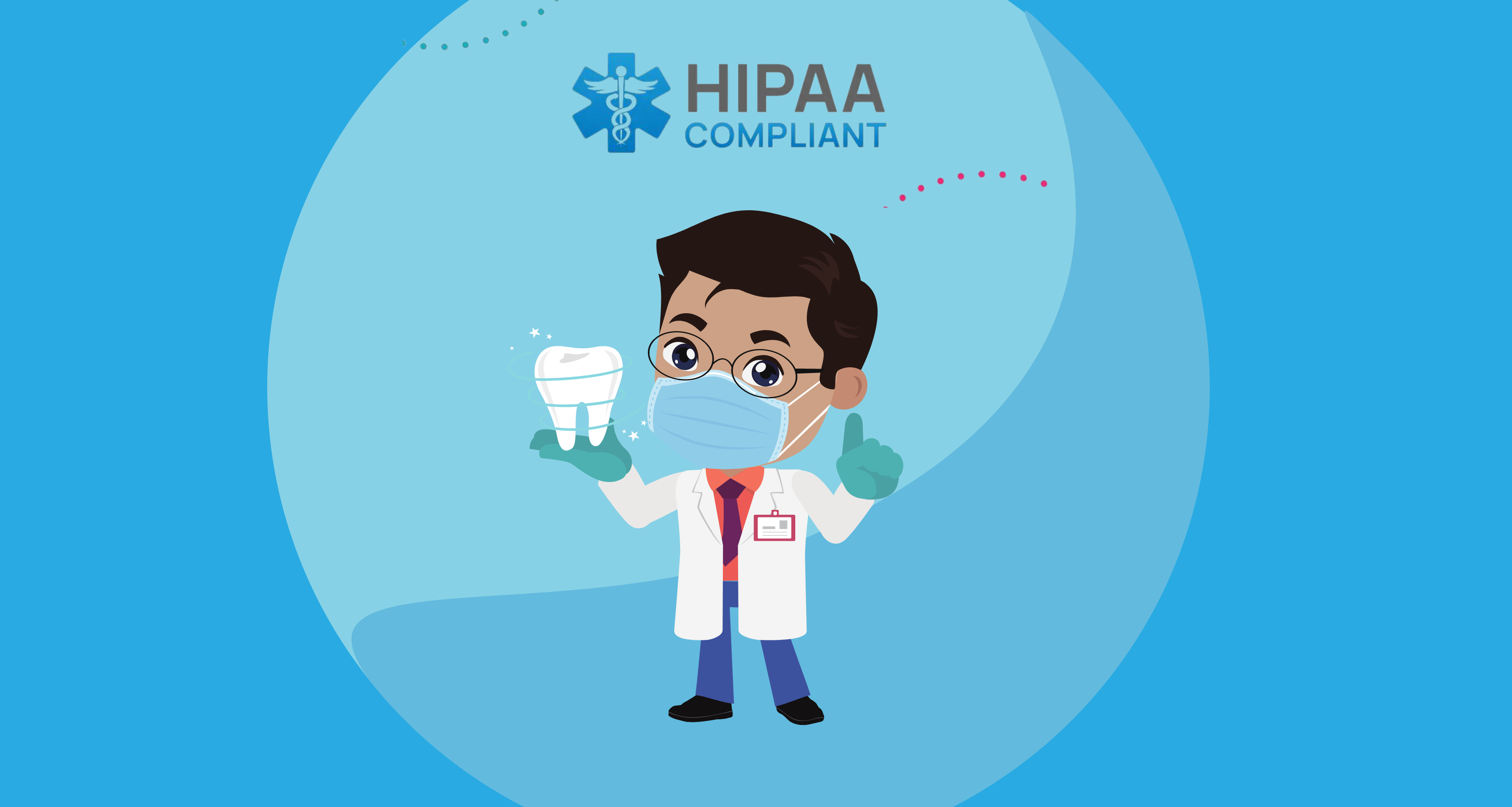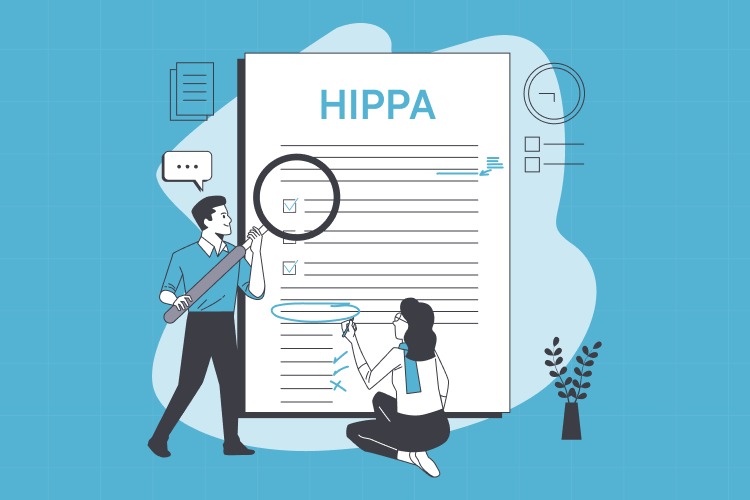
HIPAA, which stands for Health Insurance Portability and Accountability Act, is crucial for anyone working with patient health information. Following HIPAA Compliance for Dentists is key to protecting patient records and avoiding violations. When dentists and their teams understand and follow HIPAA regulations, they help ensure their patients’ private health details stay safe. HIPAA compliance for dentists isn’t just a legal must-do—it’s also a promise to patients that their personal health information is in good hands.
I Want New Patients! Schedule My FREE New Patient Strategy MeetingHIPAA Compliance for Dentists! Avoid Costly HIPAA Fines
In California, New Vision Dental faced a steep penalty of $23,000 for HIPAA noncompliance. This staggering fine resulted from the dentist’s responses to patient critiques on the review site Yelp. The dentist made the critical error of mentioning patients by name and disclosing the specifics of their appointments and insurance details.
This sensitive information is recognized as Protected Health Information (PHI) and must be kept confidential according to HIPAA standards. The incident caught the attention of the Office for Civil Rights (OCR), which enforces HIPAA rules for healthcare providers, including dental offices. Upon reviewing the Yelp interactions and conducting an on-site investigation, OCR found additional compliance issues.
Notably, New Vision Dental had not provided patients with a proper Notice of Privacy Practices, further deepening their compliance failures. The resolution involved a monetary penalty and stringent corrective measures, such as removing the inappropriate responses and contacting affected patients. Don’t let your dental practice become a similar cautionary story.
On our website, we’re committed to helping dental professionals maintain HIPAA compliance with our secure photo-sharing and website management services. Learn from New Vision Dental’s oversights and safeguard your practice – and your patient’s trust.
Guidelines for Responding to Online Reviews While Maintaining HIPAA Compliance

When you receive an online review, positive or negative, it’s important to handle it carefully to maintain HIPAA compliance. Here are some simple guidelines that every dental office member should follow:
1. Only Refer to the Username Featured in the Actual Comment
If someone leaves a review about your dental practice, use their username when you reply. This step helps make sure you follow the HIPAA Privacy Rules. Keep your answers nice, and do not share information about the person’s visit, records, or other private details.
By keeping responses general and not giving out any patient data, your dental office can keep clear of HIPAA violations while still connecting with your patients online. Remember, a simple “Thank you for your feedback!” is often enough.
2. Do Not Disclose any PHI or Details About the Patient’s Visit
Responding to reviews should never involve disclosing any Protected Health Information (PHI). Information like the patient’s name, physical or mental health condition, any care they received, or payment details linked to their health care are all off-limits. HIPAA rules clarify that giving out such information without consent is a violation.
To stay HIPAA compliant, keep your responses focused on general office policies or non-specific service offerings without mentioning personal patient details. A response like, “We always strive to provide the best care for anyone who visits our office,” is a safe way to interact without breaking trust or HIPAA laws.
3. Be Kind and Professional
When engaging with reviews, it is crucial to remain kind and professional. Any reply you post reflects your dental office and can impact how future patients see your practice. Be sure you always talk in a way that shows respect and care for everyone. If a review is tough or critical, don’t fight or blame. Instead, reply with polite words that show you hear their concerns and are ready to help.
For example, say, “We’re sorry to hear about your experience and want to improve things. Please contact our office directly so we can discuss this in a way that protects your privacy.” This keeps your dental practice’s image good and meets HIPAA standards.
4. Know Who is Responding on Behalf of Your Practice
Every covered entity must designate who is responsible for responding to online reviews and interactions involving their business associates and dental practice. This person or team should be well-trained in HIPAA Privacy and Security Rules to ensure they do not inadvertently disclose PHI. By limiting the number of individuals who can respond, your dental office reduces the risk of potential HIPAA violations.
Each response must be crafted with the utmost care, keeping breach notification rules in mind, and should always reflect the professional conduct upheld by the healthcare providers at your dental practice. This careful management of responses helps maintain patients’ trust in their dental healthcare providers.
Review Past Activity
Maintaining HIPAA compliance necessitates a diligent retrospective review of previous online patient interactions. The cautionary tale of New Vision Dental underscores the importance of this practice. As part of its corrective action plan, New Vision Dental purged all social media posts from 2014 that contained any form of Protected Health Information (PHI).
Moreover, they were required to inform past patients about the HIPAA breaches—a step that, no doubt, was both embarrassing and arduous. To preempt such a scenario, it is wise for dental practices to audit their historical online activities routinely. This involves examining posts and responses on review sites and other social platforms to identify instances of non-compliance with HIPAA standards.
Any identified lapse may necessitate deleting non-compliant posts, obtaining appropriate patient consent, or anonymizing personal details. Employing specialized HIPAA-compliant tools for social media management can help circumvent these pitfalls altogether, ensuring peace of mind and the continued trust of your patients.
Use Reputation Management Software

The digital age has empowered patients to share their healthcare experiences online, which makes managing a dental practice’s online reputation pivotal. Reputation management software is a specialized digital tool designed to monitor and help shape the public perception of a practice’s services.
These sophisticated platforms can scan various online channels, including social media and review sites, allowing practices to stay attuned to patient sentiment and rapidly respond to feedback.
Improved Responsiveness
With real-time alerts, dental practices can immediately know when a patient leaves a review or mentions their practice online. Quick awareness allows for timely, HIPAA-compliant responses, demonstrating the practice’s commitment to patient satisfaction and engagement.
Streamlined Operations
Reputation management platforms centralize different channels into one dashboard, making it simpler to navigate and manage a practice’s online presence. This consolidation saves time and decreases the risk of overlooking a patient’s comment, which might require a prompt and thoughtful reply.
Informed Decision-making
Advanced analytics offered by these software solutions provide insights into trends, patient sentiments, and overall online reputation health. This data helps practices make informed decisions about service improvements and marketing strategies.
Boosted Online Visibility
By encouraging more reviews through automated prompts and making it simpler for patients to share positive experiences, these tools can result in a greater number and higher quality of reviews, enhancing online visibility and attracting new patients.
Risk Reduction
Reputation management software with built-in HIPAA Compliance for Dentists features reduces the risk of accidental PHI exposure when interacting with reviews and comments. By using secure platforms that understand healthcare compliance, dental practices can engage confidently, upholding legal standards and patient trust.
Patient Rights Under HIPAA

Patients have specific rights under the Health Insurance Portability and Accountability Act (HIPAA) that dental practices must honor. These rights aim to provide patients with control over their personal health information (PHI) and ensure that their privacy is protected. Key rights include:
The Right to Access PHI
Patients have the right to view and obtain a copy of their health records and any other PHI that a dental practice maintains about them. Access requests must be fulfilled promptly.
The Right to Amend PHI
Patients who believe their PHI is inaccurate or incomplete can request that the dental practice correct or amend the information.
The Right to an Accounting of Disclosures
Patients may request a list of the instances in which their PHI was disclosed for certain purposes outside of treatment, payment, or healthcare operations.
The Right to Restrict Disclosures
Patients can request that their PHI not be used for certain purposes or disclosed to certain entities, especially in cases not involving treatment, payment, or healthcare operations.
The Right to Confidential Communications
Patients can request that they receive communications about their PHI by alternative means or at alternative locations to ensure privacy.
The Right to File a Complaint
Patients who believe their HIPAA rights have been violated can file a complaint with the dental practice and the U.S. Department of Health & Human Services’ Office for Civil Rights.
These rights are foundational to the trust between patients and their dental care providers. Compliance with HIPAA means protecting patient information and upholding these rights diligently.
Handling HIPAA Violations and Breaches

When a HIPAA violation or breach occurs, it is crucial for a dental practice to act swiftly and comprehensively to mitigate any potential damage. A breach of Protected Health Information (PHI) mandates a series of well-defined steps.
These include conducting a thorough investigation to understand the scope of the breach, notifying the affected patients without undue delay, and informing the appropriate authorities by federal requirements. Dental practices must also review and reinforce their privacy and security protocols to prevent future incidents.
Staff must be retrained to ensure they fully understand compliance obligations. Additionally, when a violation is identified, practices should document the corrective measures taken and closely monitor for any further anomalies indicating lapses in compliance.
Best Rated Dental Conferences To Attend Each Year
HIPAA Compliance Checklist for Dentists
Ensuring a dental practice complies with HIPAA Compliance for Dentists, but a structured approach can make this critical task manageable. Below is a condensed HIPAA compliance checklist that can serve as a starting point for dental practices:
- Conduct a Risk Assessment: Regularly evaluate the practice’s procedures and systems to identify potential vulnerabilities that could lead to a breach of PHI.
- Develop Policies and Procedures: Create clear, written HIPAA policies and ensure all staff are familiar with these guidelines.
- Employee Training: Implement a comprehensive training program for all staff members on HIPAA rules and the practice’s specific privacy and security measures.
- Secure Patient Records: Protect electronic and physical patient records with appropriate safeguards such as encryption, secure storage, and limited access based on the minimum necessary standard.
- Maintain a Privacy Officer: Designate a responsible individual to oversee compliance efforts and be the point of contact for any HIPAA-related issues.
- Breach Notification Plan: Establish a protocol for responding to breaches of PHI, including timely notification to affected individuals and necessary reporting to federal agencies.
By systematically addressing each item on this checklist, dental practices can significantly reduce their risk of HIPAA violations and enhance their commitment to patient privacy and trust.
Conclusion
In conclusion, the imperative for dental practices to maintain HIPAA compliance cannot be overstated. Upholding the standards set forth protects patients’ sensitive health information while fostering a relationship of trust. By implementing thorough practices—from managing online reputations to training staff in privacy protocols—dental professionals can ensure that they comply with the law and provide high-quality, respectful care. Hence, adhering to HIPAA regulations is a cornerstone of ethical and successful dental practice management.
I Want New Patients! Schedule My FREE New Patient Strategy Meeting